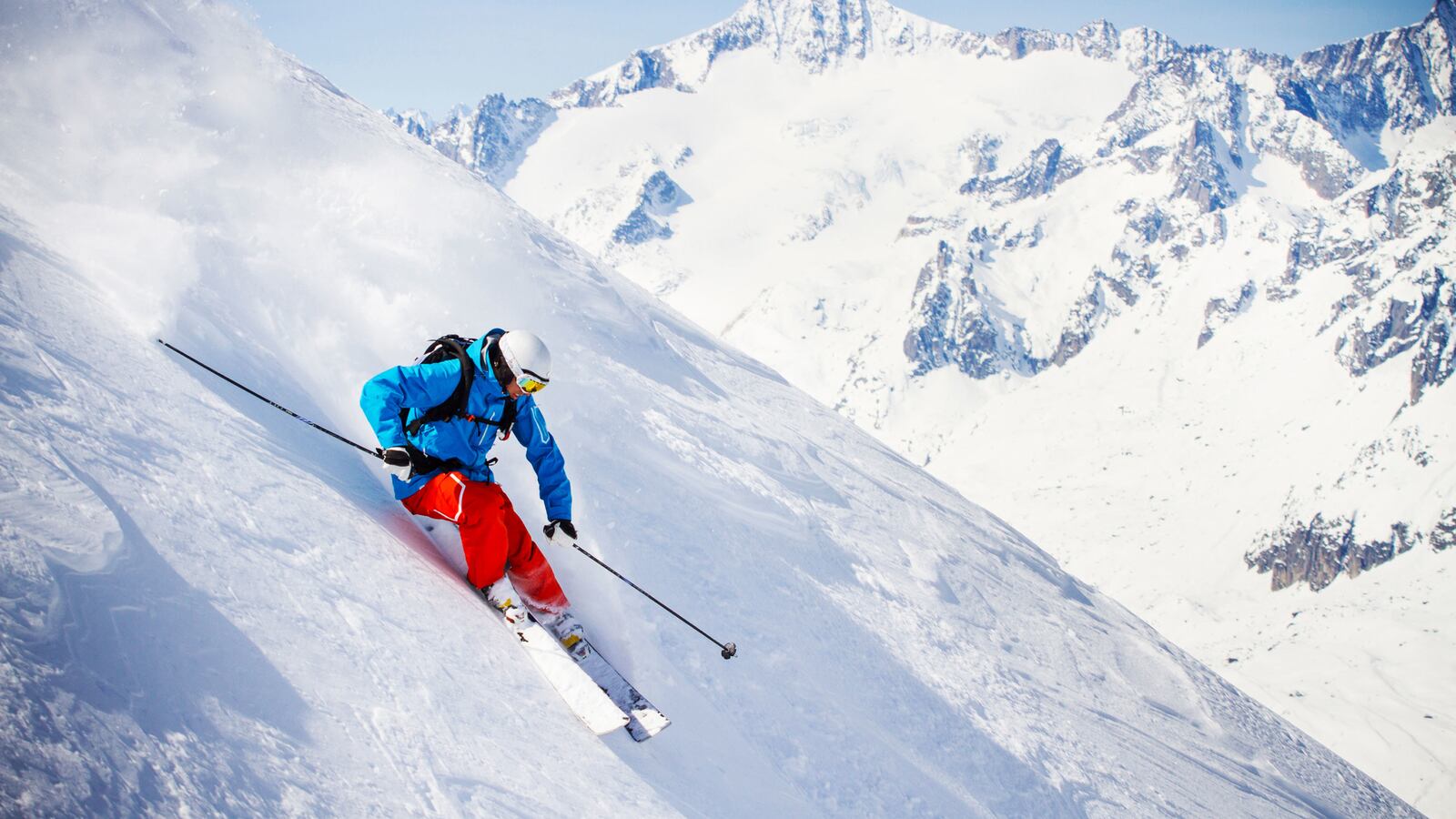America’s two largest ski conglomerates have drawn their line in the sand. While 2020 has been a banner year for corporate uncertainty, not a single mountain resort has been able to say with confidence what the upcoming ski season will look like. Nobody knows. Obviously things like face coverings and social distance and adherence to local health guidelines will be the norm; but until now, the burning question since resorts closed in March of this year has been, “Who will get to go skiing this year, and how?”
This week, however, Vail Resorts and Alterra Mountain Company made it clear where they stand: Vail Resorts will institute a reservation system, and Alterra will not.
The last decade has been something of an arms race between these two companies as they continue to add resorts to their portfolio at breakneck speed. Highlights of Vail Resorts include Vail Ski Resort, Beaver Creek, Breckenridge, Heavenly, Park City, Whistler Blackcomb, Stowe, Okemo, Crested Butte, Mount Snow, and Hunter Mountain; Alterra’s lineup includes Deer Valley, Mammoth Mountain, Squaw Valley/Alpine Meadows, Steamboat, Stratton, and Mont Tremblant.
Diehard skiers tend to hold that Vail Resorts and Alterra’s growth is the death of the ski industry as we know it as local flavor (and decision making power) defers to corporate structure; however the expansions have been a boon to the average ski consumer.
Both Vail Resorts and Alterra sell multi-resort ski passes on a pre-commitment model—by paying for an Epic Pass (Vail Resorts) or Ikon Pass (Alterra) in some instances as early as a year in advance, consumers are able to ski each of the respective companies’ entire portfolio of resorts on a single pass product, for the same price it traditionally would have cost to purchase a season pass to one mountain. Each pass extends beyond the portfolio of each company’s owned-and-operated resorts, as well, and includes a number of independently owned partner resorts.
The Epic Pass includes access to Telluride, Sun Valley, Resorts of the Canadian Rockies, and Hakuba and Rusutsu in Japan. Ikon Pass includes access to Copper Mountain and Aspen Snowmass. These pre-commitment, multi-resort pass products are a win for the resorts as well, which get their share of the cash earlier than if they were selling their own season passes. That means that regardless of how the 2021 ski season unfolds, both companies have already received a significant chunk of their revenue.
Vail Resorts’ institution of a reservation model demonstrates a distinct preference of season pass holders over impromptu single-day lift ticket purchasers.
The reservation system requires all pass holders to make a reservation before arriving at the mountain. Throughout the season, pass holders will be able to make as many week-of reservations as their pass type and availability allow. The early season will be reserved for pass holders only, and no individual lift tickets will be sold until December 8th. Epic Pass holders will have the opportunity to book up to seven core season “Priority Reservation Days” in advance; beyond those seven guaranteed days, pass holders will be able to make week-of reservations. Due to the need to both manage lift ticket sales and implement minimize physical contact, no lift tickets will be sold at ticket windows at any Vail Resorts—they have to be pre-purchased online and picked up on the premises. In a letter, CEO Rob Katz noted that “It is possible that at some point in the season, as we evaluate the dynamics of our operations, we may decide that we no longer need the reservation system at certain resorts.”
While the reservation system purports to be an efficient way to control the amount of people on any given Vail Resorts property on any given day, it also serves as a complicated layer of bureaucracy which will deter those who usually purchase single-day lift tickets. Furthermore, the average skier might only plan a handful of days each year—and if you’re late to the reservation system for the same school vacation week for which everyone else is vying, you might be out of luck for 2021.
“Certainly this year we’re prioritizing passholders,” said Jennifer Smith, a spokesperson for Whistler Blackcomb. “The focus this year isn’t revenue, the focus is safety.” While each pass product guarantees its owner a certain number of days, it remains entirely possible that Epic Pass holders might be left out in the cold if they are unable to reserve their number of days on dates that work for them.
Alterra, on the other hand, is trying its best to retain the spontaneous nature of the sport—any skier will tell you that the best days are the unplanned ones. Season pass holders will not be required to reserve days in advance, however there will be a cap on single-day lift ticket sales.
John Bleh, a spokesperson for Sugarbush Resort in Vermont, said, “If you have a local’s season pass or an Ikon, you have no restrictions on when you can come outside the normal restrictions on your pass product. We’ll also offer day tickets in advance so we’re working with capacity limitations, which we only expect to hit on a handful of really peak days. You’ll probably never see that cap met on the majority of days except for holidays and school vacations.”
While uncertainty still plagues many of the Western resorts, the Northeast is cautiously optimistic for a strong season despite all of the new COVID safety protocols.
“Sugarbush is definitely lucky because we have a huge share of locals from the Mad River Valley and Burlington areas,” said Bleh. “Boston and New York are our two biggest markets. We foresee a higher demand, because people aren’t getting on planes and are looking to stay regionally.”
Another segment of the ski industry which expects a relatively prosperous fiscal year, all things considered? Heli-skiing.
Beat Steiner, founder of Bella Coola Heli Sports located in the mid-coast region of British Columbia, noted that despite having to cancel almost 200 bookings last year at the beginning of the COVID pandemic, many of those clients have rescheduled for 2021, and that other than some new social distancing protocols in their guest lodges, all is well in the mountains. He has already completely sold out several weeks of the upcoming season, and expects next year to be even busier.
“I actually think 2022 is going to be a banner year in terms of demand. The people who still might not come this year are going to build up that need to ski fresh powder, and will be even keener to get out on the slopes. Some people are already booking two trips just to catch up,” he said. “Heli skiing is the ultimate social distancing sport there is. You’re in a vast wilderness with nobody else around you.”

